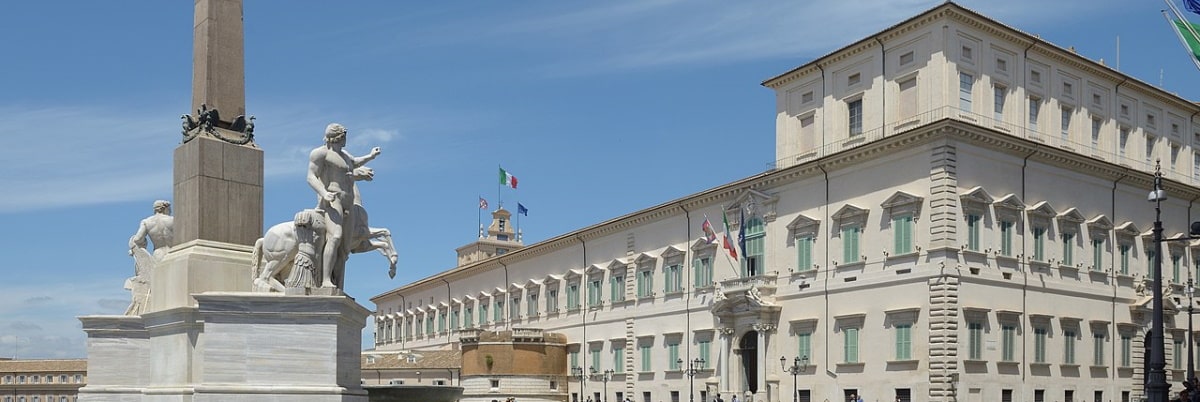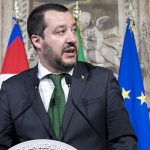The writer had already warned, in a superstitious and yet truthful manner, of the possibility that the Center-Right coalition, even though it had a greater number of Electors, invested with the right and duty to vote for the President of the Republic, would not have taken advantage of it. Leaving aside all the guesswork about possible betrayals between allies and decisions already taken on the final result, one thing is clear: since the mixed system was introduced, the Center-Left has been able, in one way or another, to vote its members to the highest office. From the particular conditions of this last round, the discussion on the possible direct election of the President of the Republic has become strong.
President elected in a parliamentary system (Austria, Portugal, Finland)
Let us start from an assumption: the election of an organ by universal suffrage gives it full legitimacy and therefore the powers it can exercise. Each member of Parliament (a collegial body) is elected in this way, while the entire Council of Ministers is not, as is the case almost everywhere else in the world. Therefore in Italy the Parliament is entrusted of voting the confidence in the executive and electing the President of the Republic; therefore we are a Parliamentary Republic. This means that the direct election of the Head of State (monocratic body) opens a variety of scenarios on which it is appropriate to consider carefully.
If we want to make this " improvement in quality ", we would not necessarily be obliged to extend its powers, although the President would also have the legitimacy to make more political decisions, as some Presidents have done so far, but without the direct vote. In short, we could choose a guarantor, an arbiter who would interfere as little as possible. This happens in Austria, which elects its Head of State by direct vote, but remains a parliamentary republic with a strong Chancellor. Similar systems that maintain the centrality of Parliament with a Government that prevails over the President are Portugal and Finland.
Semi-presidentialism (France, Poland)
If, however, from this election we wanted an increase of powers to descend, we could enter a rather broad category known to the general public as "semi-presidentialism", whose main but not only model is the current French Fifth Republic, which descends from De Gaulle's intuition that the parliamentary republic (their Fourth) was inefficient. In reality here there is a direct election that increases the powers of the President himself, but with the relationship between Parliament and Government there can be many variations, such as the Polish one.
The characteristic here is that the President is not a guarantor arbiter, because he is elected and the bearer of his own political line. He, however, rather than exercising his own political mandate in person, appoints a real government with a Prime Minister, who certainly ends up in the shade because of the predominant role of the President himself. The Council of Ministers is subject to the confidence of Parliament, which echoes the ancient parliamentary function of limiting the powers of the Sovereign, here the President. The System is mixed and there is a kind of collaboration and the President can, in some regimes, dissolve the Chambers.
Presidentialism (United States of America)
The most interesting case is that of Presidentialism, even more inspired by the opposition between King and Parliament, best represented by the United States and copied by many American republics. Here the Head of State is also the Head of Government. The Council of Ministers is completely abolished and the President holds the entire executive power and he can change his ministers (Secretaries) at will. However, a clash can be created with the legislative body, which is made up of many people, therefore different thoughts, who are local representatives, each carrying different instances and problems. What the President does and thinks may not garner the support of some, the majority or all of the legislators and therefore be halted abruptly.
Premierate
Here it is necessary to mention another possible alternative, proposed by some left-wing exponents, of the "premierate". This means the direct election of the Prime Minister. Israel was the only one to experiment it and to abandon it after only two legislatures: from this we should ask ourselves if it is really worthwhile, considering that it would displace any further institutional reform proposal. The Head of Government would be elected by universal suffrage, then he would have full powers, as President of the Council; the President of the Republic would have little or no sense (such as dissolving the chambers, but when the term expire automatically). For the Parliament would be almost impossible a no-confidence, at most the constructive German one, which is accomplished only if there is another majority already built. This hypothesis, however, does not require the direct election of the Prime Minister. It seems more theoretical than practical.
The political system is fluid and evolving
In reality, legal theory essentially includes a parliamentary regime and a presidential one, with all hybrid forms in the middle, where constitutions do not make explicit all presidential prerogatives, leaving it to the material development of the political system and to contingent occasions. In this sense every nation is unique, in its own way, and Italy has gone from pure parliamentarianism to a significant strengthening of the Cabinet and even to intrusions (not explicitly forbidden) of the Head of State into the perimeter of institutional political relations.
In the meantime, we must reflect on the material evolution of our institutions. The Executive is designed to work with the parliamentary majority, with all the difficulties of political instability. Our system has seen a progressive pathological strengthening of the Government that has devitalized Parliament, often leaving it only the role of ratifying the former decisions. Moreover, we must consider the possibility of the President of the Republic to intervene in institutional crises between Parliament and Government. We can reinforce or weaken them and obtain different results, bearing in mind that the executive function can be shifted to a President or a Head of Government. The third function, of the early dissolution of the Chambers, can be prohibited, as in the USA, or be left (after hearing the opinions of the Presidents of the Chambers).
Alternatives in the field
This brief representation could give us some ideas on how we might want to transform our Republic. The maximum respect for our institutions would perhaps be the direct election of the President without modification of powers, leaving the free reinforcement of the Government over the Parliament. The President, elected by suffrage, would intervene only in case of political crisis. If we wanted to increase them leaving an organ of executive function, we would pass to a variant of semi-presidential republic in which we invest a President with the mandate to form the Governments that he considers to carry out the mandate and keep the "electoral promises".
The last alternative, in view of the absolute primacy of our number of governments since 1945, is that perhaps a strong President would allow us to make - and execute - decisions and finally do politics in a serious way without wavering and blackmailing by micro-partisans. However, comparing the United States with South American republics that are partitioned (such as Brazil and Chile), let's see what would happen if we respectively strengthen coalitions with bipolarity or return definitively to the former proportional system. However, we would be unique in the European experience, among the few republics and the many monarchies.
Graduated in Law, specialized in agri-food law as a strategic Italian sector of the economy. Passionate about politics, history, philosophy, spirituality. For over 10 years he has been writing about national and international politics, about the transformations that the world is experiencing.








Scrivi un commento